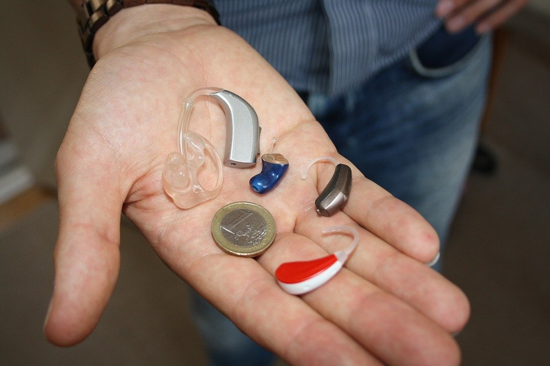What is tinnitus and does treatment work? Have you ever felt a tingling sound in your ear, which feels as if someone’s ringing a bell right inside? Well, that is a medical condition known as tinnitus. You experience slight tingling in the ears that sometimes can turn into a clicking or whistling sound. There is no cure for this condition; however, there are many ways you can control it. Sometimes a person gets extremely disturbed by the ringing, which tells it’s a serious medical condition.
Tinnitus is more like a chronic illness, but according to research, only 1 in 5 people find it exhausting and disturbing to deal with the sound. If you suffer from this same tingling sound and want to learn more about it, you must read this article further down.

(Source)
2 Types of Tinnitus
Objective Tinnitus
Objective tinnitus is when the other person near you can hear the ringing sound in your ear. This is also when the doctor can hear it while examining your ear. This type of tinnitus is very uncommon, but it usually triggers due to issues related to blood vessels or sudden muscle contractions.
Subjective Tinnitus
Subjective tinnitus is a common type of tinnitus in which only you can hear the ringing and hissing sound. Hence, the person next to you will have no idea about what you’re experiencing. This condition develops because of the issues in different areas of the ear (inner, outer, middle).
What Causes Tinnitus?
A few issues can lead to tinnitus. Sometimes this condition is short-lived, and sometimes it never goes away and tends to worsen. Mentioned below are some of the most common causes of tinnitus:
1. Earwax
Whenever your ear fills up with too much wax unusually than normal, your eardrums start to get affected. Plus, it becomes difficult to get rid of so much wax naturally. This also causes hearing loss leading to tinnitus.
2. Old-Age
Tinnitus is most common among adults over 60. And this is when many elderly start having a hard time listening, which leads to tinnitus.
3. Head or Neck Injury
In case you experience a neck or head injury, you’re most likely to experience tinnitus. These injuries are likely to cause trauma in the hearing nerves of your ear. However, you may experience tinnitus in only one ear.
4. Muscle Spasm
Sometimes the muscles in your inner ear tighten, up causing a spasm. These spasms occur due to many neurological issues that lead to tinnitus.
5. Extremely Loud Noises
The after-effects of loud music and noise from fire alarm or cleaning equipment can also result in tinnitus. The duration of these loud sounds depends on the severity of tinnitus you may experience.
Other Causes
- Changes in Ear bone
- Meier’s disease
- Acoustic neuroma
- TMJ Disorders
- Eustachian tube dysfunction
- High blood Pressure
- Atherosclerosis
- Hearing Loss
Tinnitus Treatment Options
Tinnitus is not the type of issue that gets cured overnight. Sometimes this condition never goes away, and you have to learn how to cope with it.
§ Avoid Loud Noises
The best way to prevent issues like tinnitus is by protecting your hearing. First, you must avoid listening to loud music when using your air pods or earplugs. Listening at a moderate level will prevent the causes of hearing loss. If you’re sitting in an area with loud music, give yourself a break and go out to a place with a calm atmosphere.
§ Better Lifestyle Habits
Focus on your well-being by taking care of your physical and mental health. Exercising regularly and eating clean keeps you away from many other medical conations such as tinnitus. Besides, it helps put your body in a state of calmness. Tinnitus leads to a lot of stress, and the best way to control that is by engaging in positive physical activities.

(Source)
§ Tinnitus Retaining Therapy
TRT is a sound therapy for tinnitus that involves wearing a device to eliminate low-level white noise. ENT specialists and professionals conduct this therapy and help keep your condition under control.
§ Sound Therapy
Sound therapy includes the use of other noises to help control tinnitus. These sounds act as little background music that is pleasant to the ear of the person receiving therapy. With these sounds, the person can calm down and not sense tinnitus. However, as soon as the pleasing sound goes off, they will again experience tinnitus’s effects. Sound therapy also includes hearing aids that help reduce disturbing sounds in the environment around you.
Tinnitus Treatment: Consult an ENT Specialist
Tinnitus can be a difficult condition that can be difficult to control. If you feel like the common tinnitus treatment options aren’t working, you may benefit by consulting an ENT specialist. Get in touch with Michael C. Burnett, MD at Ear, Nose, and Throat of New York for the best ENT specialist services in NYC.








 Tinnitus can be particularly disruptive in the workplace, where concentration and communication are essential. However, with proper treatment and management, individuals with tinnitus can find ways to balance work and life.
Tinnitus can be particularly disruptive in the workplace, where concentration and communication are essential. However, with proper treatment and management, individuals with tinnitus can find ways to balance work and life.
